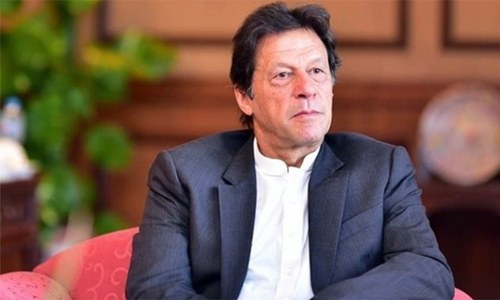EACH one of the four governments that has been in power since 1999, including the current one, has spent its first two years stabilising the precarious economic situation it inherited. Faced with the imminent threat of default, each had little option but to turn to the IMF for a bailout.
So, what has the PTI government done better or differently in its two years in office?
In judging its performance so far, let us start with the last five months, when the country faced an unparalleled crisis that Covid-19 ignited.
It it is still early to judge but there is little doubt that the PTI government has handled the pandemic with considerable dexterity and realism. While many (including myself) argued that there was no substitute for a prolonged lockdown, the government took the more realistic and sensible view that this was not possible, given Pakistan’s very large working poor population.
The fight against Covid-19 has been a team effort, which the government has ably led. On the operational front, jointly setting up the National Command and Operation Centre with the army and provincial governments has played a pivotal role in devising and implementing a coordinated strategy. On the economic front, the State Bank of Pakistan, through timely cuts in the interest rate and targeted interventions, kept many companies afloat and saved jobs. Full credit goes also to business owners, managers and workers who braved Covid-19 and kept the economy moving.
It is worrying that the IMF programme has begun to stall.
The government has provided timely direct income support to those hardest hit by the crisis to contain rising poverty and unemployment. It also channelled relief to the new urban poor and unemployed in the informal economy not covered earlier. It launched an ambitious housing and construction scheme to create jobs and jumpstart the economy. These timely steps of selectively opening up helped avoid a steep contraction in the economy. During 2019-20, exports only slightly fell and the economy is expected to contract by just two to three per cent. Encouragingly, exports have picked up further in July 2020 and a construction boom appears in the making.
If credit should be given where due, so too should the blame where deserved.
The IMF programme has helped usher in a semblance of macroeconomic stability but suffers from some major flaws. The most serious was in agreeing to a market-determined exchange rate. This resulted in a very steep devaluation — much higher than warranted by the rupee’s real purchasing power parity value and triggered much higher domestic inflation. In all fairness though, the new level (Rs160–Rs170/dollar) has fluctuated so far in a narrow band. This may not hold in the current uncertainty.
What is worrying is that the IMF programme, though not abandoned, has begun to stall with the second tranche payment now long delayed. The government recently entered a World Bank reform programme of $500 million — Resilient Institutions for Sustainable Economy — to strengthen its capacity to undertake economic reforms promised under the IMF programme. Borrowing more is not going to help if the political will to carry out reforms essential to sustaining macroeconomic stability is missing.
The government has floundered much more in its day-to-day economic management causing considerable hardship to ordinary people as they face frequent spikes in prices and frequent shortages of essential items. These have occurred mainly at the provincial level where inexperienced and inept leadership and poor administration with allegations of corruption are mainly to blame. There is a real need to take timely action.
Even more serious have been the revelation that some of its own high-ranking party members have benefited unfairly from the government policy decision on giving subsidy on sugar exports. To be fair, the government has acted quickly and decisively. It set up a committee to investigate these charges, published its report (which has rarely been done) and now started the process of bringing appropriate charges against those proved to have committed wrongdoing.
But will these steps finally reduce the power of the monopoly houses that control and manipulate prices and production of many key commodities? This will only happen if the government ensures that the guilty are brought to justice and the consumer benefits from prices that are more competitive.
The challenging task ahead for the government is clear-cut. Improve short-run economic management and draw up a three-year plan to undertake a well-thought-through series of fundamental and jstructural economic reforms. These must concentrate on raising revenues and reducing circular debt.
If it can maintain macroeconomic stability and spur sustained growth over the next three years the PTI government would have outperformed its predecessors by a wide margin.
The writer is a professor at the Lahore School of Economics and former vice chancellor of the Pakistan Institute of Development Economics.
Published in Dawn, August 9th, 2020
















































